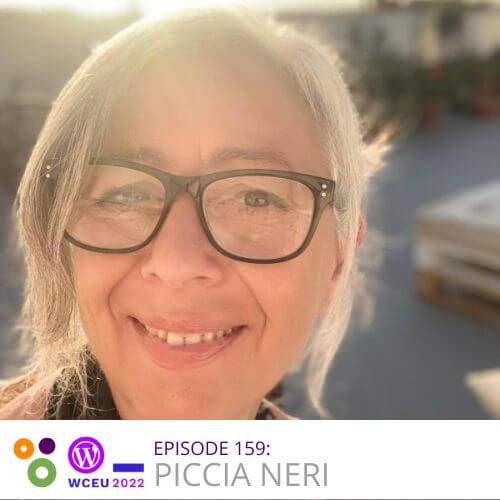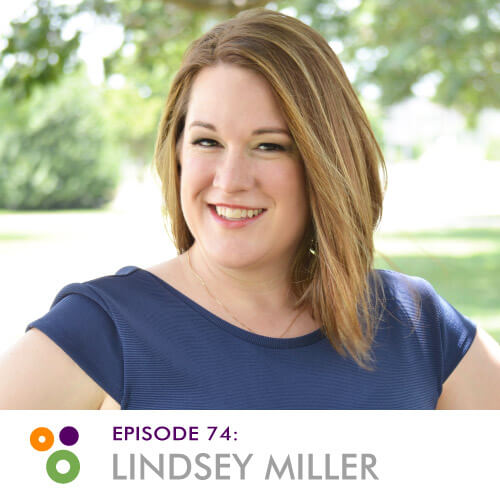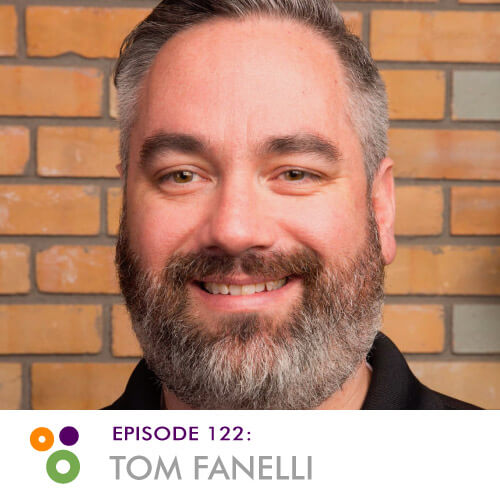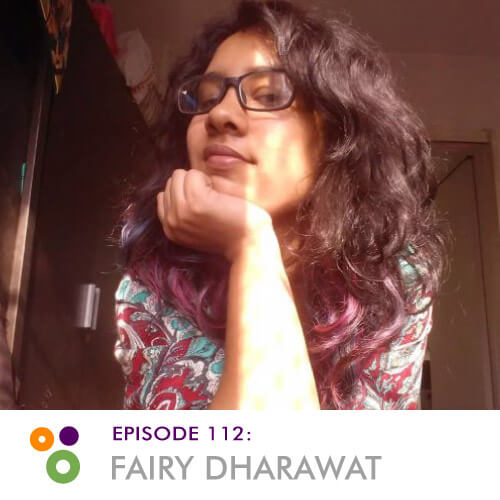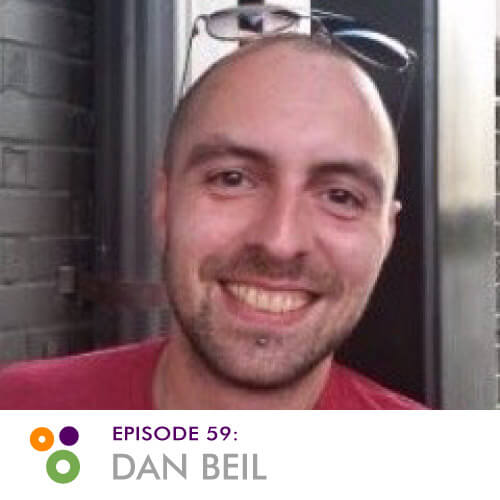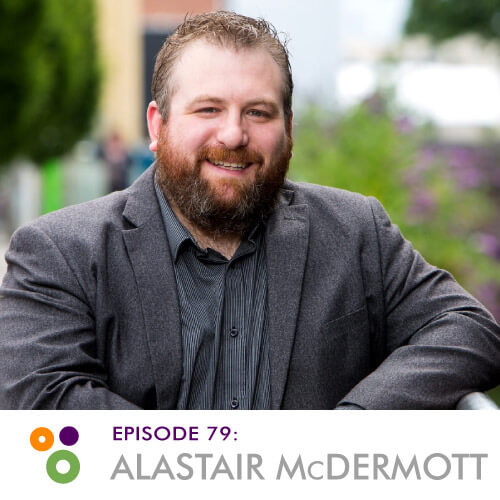Episode 115: Shayna Diamond

Podcast: Play in new window | Download
Subscribe: RSS
Introducing Shayna Diamond
Shayna loves WordPress, CSS art, clean-code, accessible websites & building inclusion in the tech community. She co-founded Shift/Enter to help people, especially those who are underrepresented, succeed in technology-related careers. She also loves rocks.
Show Notes
Website | Shift/Enter
Twitter | @whosyourwebsite
LinkedIn | Shaynald
Hashtag | #shiftentercville
Preferred Pronouns | She/Her
Episode Transcript
Tara: This is Hallway Chats, where we meet people who use WordPress.
Liam: We ask questions and our guests share their stories, ideas, and perspectives.
Tara: And now the conversation begins. This is Episode 115.
Tara: Welcome to Hallway Chats. I’m Tara Claeys.
Liam: And I’m Liam Dempsey. Today we’re joined by Shayna Diamond. Shayna loves WordPress, CSS, art, clean code, accessible website and building inclusion in the tech community. She co-founded Shift/Enter to help people, especially those who are underrepresented succeed in technology-related careers. She also loves rocks. Welcome, Shayna.
Shayna: Hi. Thanks.
Tara: Hey, Shayna. It’s great to see you. Thanks for joining us on Hallway Chats. Can you tell us a little bit more about yourself?
Shayna: Sure. I came into technology sideways, I would say to the side door after being a jewelry artist and rock hound and nomad for about 10 years. Then I started studying web development and started building sites in WordPress, where most of my career has been working in WordPress building custom sites and customizing themes and all the usual handful that goes with being a developer in the WordPress world.
I became a chapter leader for my local chapter of Girl Develop It to help mostly women get started and launch their careers in technology. I really felt like with the women in tech communities and the WordPress communities I had found my people, my clan sort of for the first time in my adult life. So I wanted to help other people who were intrigued by that workspace break in.
During this time, I became good friends with a woman who works as a software manager, I believe is her title. She was on hiring committees and she had been for longer than I’d been working in tech and had discovered this paradox of knowing people through organizations who were talented people looking for jobs who could never find the jobs they needed. As a hiring manager, looking for talented employees and not being able to find them for jobs she had openings for and felt like there has to be a way to get these two communities to find each other.
So last year, we started an organization called Shift/Enter to run career-centric conferences, teaching interview skills and job search skills negotiation. We’re launching a larger conference this coming year with a track specifically for hiring managers, for them to get us help in writing job requisition and how it to find diverse candidates. My last job, we were hiring an engineer and my boss said, “I’m not against hiring minorities or women but they don’t apply for the opening.” So what does that mean about the way the job description might be written or where you’re posting it? That’s our current goal, and that’s my recent drive.
Tara: So it has a little bit of an element of like a match.com for business. Am I understanding that correctly? Is it an online system?
Shayna: It’s not an online system right now. Right now it is conferences primarily to help teach these skills. At the previous two, we did one on one mock interviews and resume reviews to help job seekers figure out how to make their application stand out and then how to make themselves stand out in an interview to how do you answer some of those tricky questions. We had a whiteboard practice. For coding challenges, which are extremely intimidating, especially if you didn’t come through a traditional background into tech, it never occurred to me until I started going to interviews that I was going to be asked to write code in front of people. That it’s intimidating for the whole cohort of workers now who’ve come through bootcamps or been self-taught developers.
So we did a lot of that kind of thing. What are they really looking for? You don’t need to write code on a whiteboard that could be plugged in exactly and run. We know that. That’s not how people write, but it’s still a tool hiring managers use. So we’ve been doing these past two conferences, we’re focused on job seekers. Then the next one is going to add this line for employers.
The idea of a match.com situation or actually helping them pair each other is fabulous. And that might be something we iterate into. We have a vision for something like that for mentorship, to have a way for mentors to provide profiles and times of availability, and people seeking mentors to read through these profiles and say, “This person has the job or the career path I want.” But that is kind of on the 2021 timetable for us.
Tara: I see. That would be cool. It’s a really interesting concept. How have you found it? This is like a side hustle for you or is this your fulltime job?
Shayna: This is completely volunteer and on the side. There’s no compensation right now. We like the idea of offering classes like in the Girl Develop It model essentially, to offer inexpensive paid coding classes and maybe other professional development classes. And I believe that anybody who teaches anything should get paid for teaching it. So, at that point, they may be some financial reward for some of us. But at this point, it’s just a passion project.
Tara: What kind of challenges have you faced with it?
Shayna: Logistics—-finding venues in order to have a lot of one on one time. We have a great venue for the smaller conferences, but we are now looking for a larger space that can accommodate three tracks of speakers and has small spaces for five or six consecutive one on one meetings and mock interviews and things like that. That has been huge.
We expected fundraising to be a major hurdle, but our local tech community has been so supportive that we were turning down donations last time around, saying, “We don’t have an MPO above us. We’re working on forming one so that we can have an actual bank account and just take donations.” But we for the last two conferences, we’ve been saying, “We need somebody to pay for lunch, and here’s the bill,” and they paid the vendor directly. We actually had people coming up from local tech companies wanting to support us and we had run out of things for them to pay for, which was just overwhelming. It’s been such a positive experience in those regards.
Tara: I’m going to switch gears and ask you about what a rock hound is and what your rock relationship is?
Shayna: Rocks are friends. I’m a rock hound is a person who looks for rocks and minerals out in the world in nature. That is one of my passions. I’ve been rock hounding since I was a kid in Florida. It was mostly fossils and shells. I grew up in South Florida. Then I’ve dug for garnets in Connecticut and tourmaline in Maine and geodes and rhyolites in New Mexico. It’s a tremendous amount of fun. It’s a treasure hunt. It’s going to an area where you know certain minerals can be found and digging in the dirt until you find them. I think there’s very few things that are more gratifying than pulling a shiny quartz crystal out of the dirt. It’s absolutely wonderful.
Rocks are friends is a line from the Labyrinth. I don’t know if it’s Jim Henson’s movie “Labyrinth” that he calls the rocks and they come and help them. So rocks are friends. That’s how I feel. They’re all over my house and life and world.
Tara: Interesting. I love the sort of the pastimes and the side hobbies of people that chatted with like video games or different things like that. We have yet to meet someone who’s a rock hound. So that’s really interesting.
Shayna: My first passion. A lot of women say that at some point, usually in high school, they got the impression that math and science were not for girls and or not for them and they were steered towards art and other things or English. I was always very much involved in art and literature. But I do remember the time in my high school math class when I thought I wanted to go into geology and study crystology and mineral formations, and really basically being told that math was not my direction.
I know so many women who say that they had one of those moments and decided that they couldn’t be a developer or a computer scientist. For me, it was the moment that I probably decided not to become a geologist. But I’m fascinated by what nature does.
Liam: That’s pretty clear from the sound of your voice and the way that you’re talking about it. I wonder the gift flip the time when you said you were in high school when you were told the math was not for you really indicating probably that you’re a woman rather than anything reflective of your ability and your grades, that kind of close that science door for you, at least in the immediate future. Did you realize that at the time?
Shayna: No.
Liam: Or is this a more recent…revelation?
Shayna: Revelation.
Liam: How did that figure into the work that you’re doing now with shift into? Was that an impetus start? Did you start it and then kind of the memory came back? Talk to us about that.
Shayna: Prior to Shift/Enter, I was involved with Girl Develop It for several years. I started as an attendee of the mentoring sessions and then I became an organizer and eventually a chapter leader. And it was incumbent…
Liam: Let me just interrupt you if I can. Did you share with us where you’re based, where you work and where you live?
Shayna: No, no, I don’t think I did. Sorry. I’m right now I’m actually living in Scottsville, Virginia, which is about 20 miles south of Charlottesville. So Charlottesville is my talent and where my tech community is, but I live in a tiny little downtown. That’s a town of about 300 people and I can walk to everything. I love it here.
Liam: Lovely. Sorry to interrupt. go ahead.
Shayna: No, that’s fine. I realize I’ve mentioned Girl Develop It a couple of times without mentioning what it is. Girl Develop It as a national organization that teaches coding and development skills to women working or wanting to work in the technology world. So, through my involvement with Girl Develop It, GDI, I met a number of women who shared those kinds of stories with me that. They signed up for a computer science class, and they were the only girl in the room so they never took another one. And if they had, they would have continued to pursue technology-related fields then. But now here they were 15 years later, maybe after having kids still playing on their computer at home and deciding they want to get into the workforce. And so I’d had a lot of those conversations with people.
Then I’m a member of a rock club that meets near here. I was talking to somebody who was going to school to be a geologist and it was one of those, “Yeah, I thought I wanted to be a geologist when I was a kid, and I kind of had to figure out what when did that change?” And I flashed back to this conversation with a high school geometry teacher…trigonometry actually was the class. I had her for geometry also, but it was intrigued that she told me that I shouldn’t bother taking more math and science classes that I had to because art was really my thing, which it kind of was too, but now I make them both work. I’m sure I would have then.
Liam: Yeah, that’s so interesting the way that “Oh, I see you’re very good at art, you shouldn’t take math.” or “I see you’re very good at math, don’t bother with art. Don’t bother with English. Don’t bother.” It’s such a unique siloing when as human beings we tend to flourish when we’re well rounded and we have different interests. That’s a shame in a lot of ways.
Shayna: Yeah. Yeah, it is. It’s as if being really well rounded and broadly educated is a bad thing.
Liam: Let me ask you about…You said previously that you made jewelry and then you became a developer. I wonder your thought process as your interest in making websites grows and deepened. And then how did you approach do I want to design do I want to develop? Do I want to do both? Do I want to be 80% developer 20% designer or flip flop it? How did that work for you? How did that all come together?
Shayna: It’s kind of interesting. I’ve avoided most of those definitions that put you in boxes for a lot of this process for me. I was nomadic and I had built my first website on BlogSpot, actually, because my brother used BlogSpot for his writing. He taught me just enough HTML and CSS to change the colors and put in images. It was just a record of where I had been, shows I was going to, pictures of my jewelry.
I would show it to people to other vendors at some of these events, and they were, “You’ve got a website? How did you get a website?” This was maybe 2008, 2010. They were also amazed that I had a website. Some of them would ask if I could make one for them, and I’d laugh and say, “No, this is really, really amateurish. I wouldn’t pay someone to make this for me. I just did it.” But I’d tell them, you know, “It’s BlogSpot. It’s free. Here’s what it is and where you can do it.”
That kind of went on for a while. Eventually, I got tired of being a nomad. Things in my personal life were changing and I decided to stop traveling and moved back to South Florida where I’d grown up and where my dad was a professor of photography at The Art Institute of Ft. Lauderdale. So children of faculty could take classes for free.
So while I was no longer going to be nomadic, and trying to figure out if I could convert my jewelry business model to one that didn’t require me to be nomadic, I’d take some website classes. So if nothing else, I would have a better site that I was proud of. And when people said, “Can you build one for me?” I’d say, “Yes, and this is what you can pay me for it.” So that was my original plan was really just to freelance building sites.
I then discovered the joy of salary And decided I didn’t want to freelance as a primary form of revenue. So things evolved. In school, at that school, there was one program for website design and development. The professors would tell us, “Most of you will discover that you want to follow one path more than the other. And that’s great. You pick something and excel in it.” And my design teachers thought that I was going to be a designer, and my development teachers thought I was going to be a developer. And I really refused to choose between them. I felt like especially if I was going to freelance I probably wind up doing a little bit of both. And that was going to have to be okay.
If I took a job I would I’d like working with designers. I don’t think that I’m…I’m a good designer when I’m given a starting place. I don’t like coming up with ideas out of thin air. I really love working with a designer who can come up with a color palette and a look and feel for a site and maybe design the homepage and one or two interior pages and then I can take it from there and build additional pages within that look and feel. But I like to at least have colors before I get started. Otherwise, they all wind up looking very, very similar. Because I guess I just don’t get that creative with my ideas or my layout. I like what I like. It doesn’t always what other people are looking for. That’s kind of that balance. I don’t remember the second part of your question.
Tara: I don’t remember the second part of his question either, but I’ll ask a new one. I love the evolution of you know, so many people, myself included, you learn something out of necessity and then it becomes something that you do. So, the fact that you learned how to build websites without the intention of doing that for a living is a great way to approach a new career.
I want to ask you about success, Shayna. We ask all of our guests this question because it’s interesting to hear how people define success, whether it’s in their personal life or their professional life, what success means to you. Can you share that with us?
Shayna: Yeah. I really like to look at the small components that make up the big picture. So I really love setting small, attainable goals. And I every time I meet one of those, that’s a success. That’s a small success, or sometimes it’s a monumental success. I consider our Shift/Enter conferences to have been successful because I’ve had people come up and tell me that they credit their job to the fact that they attended the conference.
I feel like my personal life I’m successful if financial success and all of those if I’m meeting my goals, which is to keep debt down and pay my bills and not have the electric turned off, which has not happened in many years at this point. So, based on that, I consider myself successful. But I think for each individual, it’s about meeting the goals you set for yourself, whatever that is. If somebody feels like they need family, then that is what they’ll need to be successful. But I like setting small, realistic goals and meeting them. It keeps me feeling good.
Tara: What’s your process for setting those goals and tracking them?
Shayna: I don’t know that I have a well-defined process. I get very scattered. I have a lot of balls in the air at the time. So if none of them break that success if I don’t really smash and drop something. I think that I do like my spreadsheets, but I don’t follow them completely. I like creating them. I do this a lot where I’ll create a budget, and then never look at it again. And then six months later, I’ll go through my records and see how close to that budget I was, not necessarily as a measure of success, but as a measure of whether or not I’m realistic with myself. I don’t know.
Liam: I’m always curious about it. I’ve read a lot of books about setting goals and productivity and all that kind of thing. So it’s always in interesting to hear. Spreadsheets are marvelous. I’m a huge fan of spreadsheets. I think they’re great to get your thoughts out. Sometimes they become unwieldy though and then they’re hard to actually implement or apply because they become so intimidating. At least I find that with some of the ones that I’ve made.
Shayna: Not if you make them and then ignore them for six months, so then they stay exactly the same size.
Tara: Mostly that’s what happens, right?
Shayna: Yeah. It’s hard to say. The other thing, I don’t know if it really spoke to Liam’s question, or if it was just one of the phrases that popped into my head when he was asking it, but about the transition from jewelry to website development. When I was first, trying to freelance and looking for clients, one of the things that I had in my bio, I think, was that I’m a physical, I’m a maker. It wasn’t just jewelry, I did ceramics my first college degree, and I love to make things and build things. And to me, just like all the websites, it’s a combination of something that is aesthetically pleasing and functional.
There’s similarity in the way these things work. That no matter how attractive something that piece of jewelry or a piece of clothing is, if it’s uncomfortable and hard to wear, then that is bad. And the same thing with a beautiful website that provides an awful user experience. I think that’s part of why I really care about things like accessibility and building intuitive user experiences and interfaces. I think that’s something I carry over from working in physical tactile mediums.
Liam: That’s really neat. I feel like we could go on for hours on that one. But I’m just I’m going to ask you about your involvement in the WordPress community. How are you involved, and what do you do, and what works for you, and what do you like?
Shayna: I’m less involved now than I was this time last year. And then I’m was a little bit less involved than I was this time the year before. I blame employment on that. When I was freelancing, I went to WordCamps. I tried to go four times a year. I looked to go every quarter to at least one WordCamp. I started speaking, I spoke at a few of them: Lancaster, DC, Hampton Roads.
For a while, I was volunteering with the theme review committee. I tried to volunteer with the accessibility community but it was a little bit hard for me to schedule working with them. I’ve done some support on the forums, answering questions and things like that. But last May, I quit the job that I was working at that used WordPress primarily, and now I’m using WordPress occasionally at work still for all of my side projects. But the company I now work for is transitioning off of WordPress sites for reasons I don’t completely understand. But that decision was made before my hiring.
We used to have a really great WordPress meetup here in Charlottesville. And then attendance numbers started falling and it’s been a little difficult for the last six months or so. I don’t think that has been…we may have had one session but I couldn’t make it. I miss the WordPress community and I miss being very involved with it. I was surprised that when I was looking for work this summer I didn’t wind up at a more heavily WordPress oriented company. But that’s the way the cards landed.
Tara: Well, I imagine with your Girl Develop It experience, you are exposed to a broader community than WordPress because Girl Develop It isn’t necessarily WordPress focused.
Shayna: Sure, that’s definitely true. We work with the whole suite of languages. I taught all of our WordPress classes and PHP. I really like working in PHP, which is why I wound up where I am, because although they’re not WordPress, they are a PHP. So yeah, it definitely helped to broaden my horizons.
When I first started working as a developer, I did not want to work in WordPress. Eight years ago, I guess I was saying, “In school, I built the custom CMS. Why would I use one that already exists?” And I know that’s a very common sentiment. It didn’t take long to realize how wrong I was and how much WordPress had to offer. But I recognize the value of WordPress when I started building a lot of sites in it. But I didn’t really fall in love with the platform until I got involved with the WordPress community. WordCamp Lancaster was my first WordCamp. And it was one of those “these are my peeps” kind of moments for me.
Tara: Yeah, we love the WordPress community too. I imagine that it is an adjustment not being as involved as you used to be.
Shayna: It really is. It really is. When my jobs stopped sending me to camps, and then I would go anyway if I could get the time and money together.
Tara: Is your Shift/Enter community? Do you think that reflects a little bit on your experience in the WordPress community? Did you carry some of that ethos with you there? It sounds like you’re really passionate about doing that work, and it seems to have some similarities.
Shayna: Definitely. Well, the desire to bring together a community of people who are interested in code and development and the whole world exists in both places definitely. When I build these conferences, I’m modeling them in many ways after WordCamps because they were my favorite conferences ever to attend. So it’s definitely a huge influence on that.
I would talk to people outside of WordPress community who would talk about the lack of integration, gender, racial and other forms of integration in the tech community, and I would go to a WordCamp and say, “I don’t see it.” And it’s really amazing to me how much more inclusive and accepting WordPress community is than the broader tech community. Comparing WordCamp US to NationJS, they look like completely different industries in the makeup of the attendees.
Tara: So have you ever attended these other conferences?
Shayna: I went to NationJS two or three years ago
Tara: It’s interesting because I think there’s a lot of conversation that WordPress community about getting better at being inclusive and having a better balance of speakers, gender and better balance racially as well in our community because it is…I think it’s less homogeneous, but it is a conversation that comes up often. So I’m wondering, is that conversation happening in other places or is WordPress ahead of other communities, do you think?
Shayna: I think it I’m not as involved in other communities. I think it is happening there, but not at the same level. And I think WordPress was ahead of the curve on talking about these issues, probably because it is open source and backwards compatible and all of the efforts that are made in the development world of WordPress to make it accessible to everyone. I remember Matt saying that in one of his State of the Word addresses about how important it was to have everybody have access.
I think that when a community feels that way, in general, they’re going to feel that way about exclusivity.
Tara: I’m going to finish with one final question. I know we’re almost out of time. Maybe we are out of time. But we always ask people about advice. This has gone by so fast that I lost track of time. So if you can share with us some advice that you’ve received that you’d like to pass on to our listeners that you’ve implemented in your life.
Shayna: I thought maybe you were letting me slide on that one when I saw the time disappear.
Tara: No, no.
Liam: Yeah, nope.
Shayna: Yeah, no, I get it. I get it. I’ve been thinking about it for a while, actually, because I listen to the podcast. So I’ve known it was coming. It kind of goes back to the other question you ask everybody about success. And that is that the advice would be that it is perfectly acceptable to change your goals, that it is not failure to change directions. I know that when I gave up my first business, which I still do a little bit part-time, tiny scale. It felt like a failure. It felt like this wasn’t the thing that was going to support me and I put so much into it. And I was told by many people, it’s not failure to recognize that it’s time for change. And I think that not to beat oneself up for changing direction is really good advice I was given.
Tara: I think you nailed it. Absolutely. Thank you so much.
Liam: Yeah, yeah. That’s fantastic.
Tara: Great way to end the show, Shayna. Thank you.
Shayna: Thanks. Oh, my pleasure.
Tara: Can you share with everyone where they can find you online?
Shayna: Yeah. I’m on Twitter at @whosyourwebsite? And I’m on LinkedIn. I think it’s Shayna LD.
Tara: Thank you so much for joining us. It’s really great to see you. I know we’ve met before so it’s good to see you again after a while.
Shayna: Likewise.
Tara: I hope to see you again.
Shayna: I’m fingers crossed for WordCamp Lancaster this year.
Tara: All right. Thank you.
Liam: We hope to see you there, Shayna. Thank you. Thank you for your time.
Shayna: You’re welcome.
Tara: Bye.
Liam: Bye.
Liam: Thanks for listening to the show. We sure hope you enjoyed it as much as we did.
Tara: If you like what we’re doing here – meeting new people in our WordPress community – we invite you to tell others about it. We’re on iTunes and at hallwaychats-staging.ulpgsyz6-liquidwebsites.com.
Liam: Better yet, ask your WordPress friends and colleagues to join us on the show. Encourage them to complete the “Be on the show” form on our site, to tell us about themselves.
